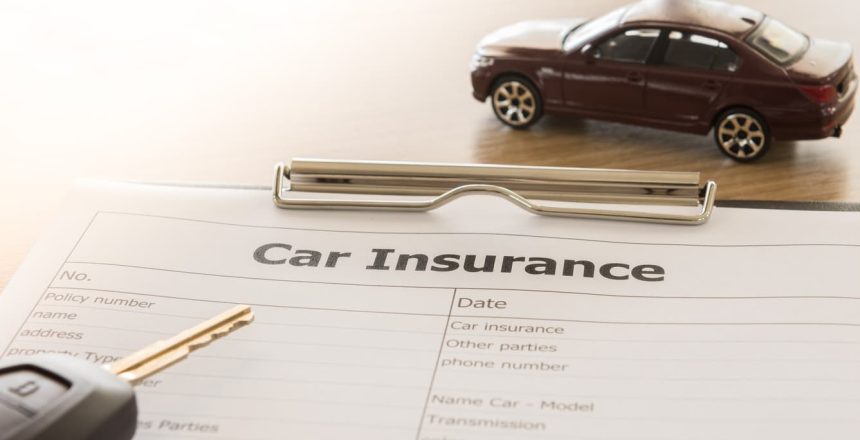Your current level of auto coverage will determine if extra car insurance is needed when shipping your vehicle.
Auto transport is generally considered safe, as the majority of carriers will take great care of your vehicle during transit. Most drivers are professional and avoid unnecessary risks to ensure the safe delivery of your car. To further guarantee the safety of your vehicle, it’s advisable to carefully select your auto transport carrier. This can be done by reading reviews, checking licensing, and using the services of a car shipping broker.
Despite these precautions, unexpected events may still result in damage to your vehicle, such as from road debris or environmental factors that it may not be protected against.
Auto transport insurance offers added protection from these elements by paying for damages, but how does it work?
Will your carrier’s insurance cover the damage?
Does your standard car insurance include supplemental auto transport coverage?
Should you buy more car shipping insurance before sending your vehicle out on the road?
The answers to these questions depend on the circumstances, so here’s what you should know about car shipping insurance.
Key Takeaways
- Insurance is essential to protect your vehicle during shipping
- Your carrier is required by law to offer some insurance
- This insurance might not be enough
- Supplemental insurance is recommended when coverage gaps exist
Your Carrier’s Car Shipping Insurance
By law, all auto transport carriers must provide some insurance covering your vehicle while it’s in transit. However, the actual policy they offer varies from vendor to vendor.
For example, some carriers’ insurance policies might only cover the car while it’s on the truck and not while it’s being loaded or unloaded. It also might not offer coverage when the vehicle is sitting at the terminal.
These policies generally don’t provide insurance for anything you leave inside your car, either. So, if you forget a valuable item in your trunk and it goes missing, you’re out of luck unless you buy additional coverage or your existing car insurance covers it.
Another aspect worth considering is the cost of your carrier’s insurance. Many reputable transport companies will include this expense with your quote, but some vendors will sneak in an insurance surcharge later on. In these situations, you could find yourself with the bare minimum of coverage unless you pay extra.
It’s usually advisable to ask your carrier for a copy of the exact insurance coverage you’ll have before signing any contract to ensure your vehicle has as much protection as possible while on the road.
If you aren’t comfortable with the level of coverage you’re receiving, shop around until you find a vendor who will protect your vehicle.
Your Car Insurance Policy
Your vehicle’s existing insurance policy might offer some coverage throughout the shipping process. It’s a good idea to ask your insurance provider whether your car insurance covers damage incurred during shipping.
The insurance provider should give you a straightforward answer to this question and might offer to upgrade your policy to fill in any coverage gaps that could lead to additional expenses in the future.
You’ll also want to ask about your vehicle’s contents during shipping and if there are any limits on how much damage your policy covers.
For example, if you ship a collectible car and it’s damaged while on the truck, ensuring you can have it repaired without paying for it yourself is essential.
The same goes for the contents of your vehicle because many car insurance policies only cover them to a certain point. Getting as much information as possible from your car insurance provider allows you to make informed decisions throughout the vehicle transport process.
Protective Measures You Can Take
In addition to insurance, taking a few proactive steps to limit how much damage your car could incur during the auto transport process is a good idea.
First, you’ll want to remove any loose items from the vehicle before loading it onto the truck. These items could move around during transport and damage the inside of your car. Likewise, there’s a good chance the carrier’s policy won’t cover it.
Next, ensure you select a shipping type that offers the level of protection your vehicle needs. For example, if you’re shipping a rare car, going with an enclosed trailer will keep the automobile safer throughout transport. This decision could limit the amount of insurance you need and save money if your insurance company wants to charge a significant amount for coverage.
Finally, always complete a pre-possession inspection and make a note of any new blemishes you see. This step is crucial because it’s the only chance you’ll have to pin damages on the carrier. Once you drive your car away from the terminal, you’re probably responsible for any damages you find later.
Do You Need Extra Car Shipping Insurance?
Additional car shipping insurance might be necessary, but it’s entirely dependent on the coverage you already have. Speaking with your carrier and asking for proof of insurance in writing is an excellent first step. You’ll also want to ask your car insurance agent about your policy’s coverage.
If you find gaps in these policies, seeking additional car shipping insurance will help keep your expenses at a minimum if something goes wrong while your vehicle is on the road.
Finding The Right Carrier
Having a pleasant car shipping experience comes down to identifying a reputable carrier that is upfront about the insurance it includes and takes the necessary steps to keep your car safe. Without a reputable vendor, you’re leaving a lot to chance throughout the auto transport process.
Mercury Auto Transport is a car shipping broker that presents its clients with quotes from FMCSA licensed and insured carriers. You can be confident that any offers you receive from our partners guarantee the price you’ll pay. This also includes 100% bumper-to-bumper insurance without hidden fees or surcharges. Contact Mercury Auto Transport today to receive your free vehicle shipping quote.
FAQs on Car Shipping Insurance
Is car shipping insurance mandatory?
No, car shipping insurance is not mandatory, but it is recommended to have additional coverage to protect your investment.
Are the contents of my car covered during shipping?
The contents of your car might not be covered by your carrier’s insurance or your existing car insurance policy. It’s important to check with your carrier and insurance provider for information on coverage for the contents of your car during shipping.
What should I do if I forget a valuable item in my car and it goes missing during shipping?
If you forget a valuable item in your car and it goes missing during shipping, your carrier’s insurance might not cover it. It’s a good idea to check with your insurance provider if your car insurance covers the contents of your car during shipping, or consider purchasing additional coverage.






